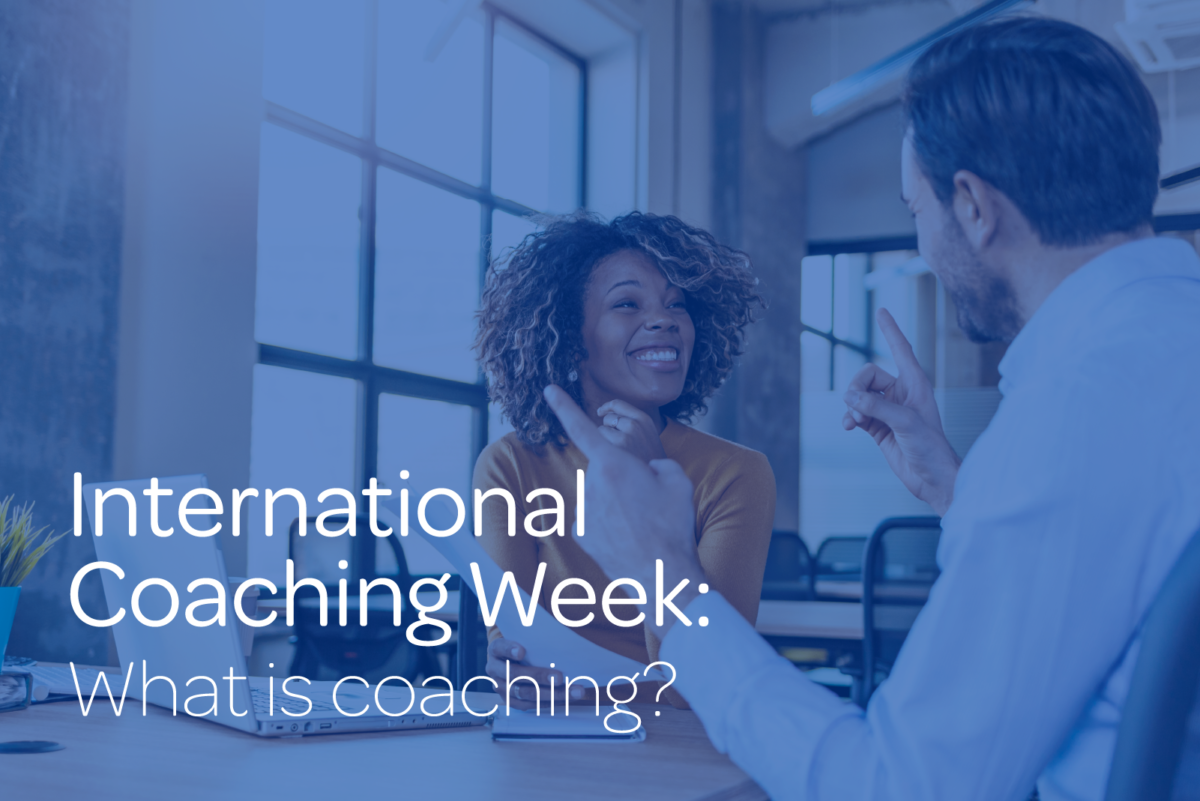Professional coaching is a relatively young field and narrowly understood. This week is International Coaching Week, so it’s the perfect time to answer common coaching questions, including what it is and how it helps leaders reach their full potential.
Coaching is experiencing a moment of great growth, as evidenced by the International Coaching Federation’s (ICF) 2020 Global Coaching Report Executive Summary, which highlights the results of a study on the growth of coaching worldwide. The increased popularity of professional coaching is a testament to its impact.
The ICF, the coaching profession’s global governing body, defines coaching as “partnering with clients in a thought-provoking and creative process that inspires them to maximize their personal and professional potential.” This definition rings true. Also, any coach will give you an answer that is more personal, because coaching, at its core, is about using human interaction to spark a series of encounters that create transformational shifts for the client. Coaching makes us cry, laugh, explore, yell in frustration and ultimately, access our best selves.
Because professional coaching is a relatively new field that’s still gaining momentum, it is currently unregulated in the US. As I always tell prospective clients, know whom you’re engaging because my 12-year-old daughter could hang out her shingle as a coach and no regulator would shut her down. As a result, people with no professional training are calling themselves coaches without repercussions. Many of them are fantastic professionals in their field and are valuable mentors, advisors, thought leaders, etc. with a genuine desire to share their skills and help others create transformation. But they are not professional coaches.
What makes someone a professional coach?
- Training. ICF’s entry-level credential, Associate Certified Coach (ACC), requires 65+ hours of training, 100+ hours of coaching (some recorded and evaluated by mentor coaches) and the passing of the Coach Knowledge Assessment. The next level, Professional Certified Coach (PCC), requires the same exam, but 125+ hours of training and 500+ hours of coaching. The highest level, Master Certified Coach (MCC), requires over 2,500 hours of coaching plus additional professional development. Anyone with these credentials has invested time and money, and is serious about professional coaching.
- Code of ethics. ICF requires all its coaches to adhere to its code of ethics, and to complete ongoing development. The code is complex because getting personal with clients means that grey areas, conflicts of interest, and other tricky situations arise. The code of ethics is a peer-reviewed, frequently evaluated framework.
- Process. No two coaches deliver coaching the same way, but generally, we follow a multi-step process designed to help clients create awareness that translates into action and change.
I have watched with admiration as clients bravely explore everything from deeply-buried and painful moments from childhood to the responsibility of leading thousands of employees through the COVID-19 pandemic. Coaching results are never mine – they are the client’s.
If you have more questions or are ready to try coaching for yourself, get in touch by emailing me at lwilliamson@platinumruleadvisors.com.

